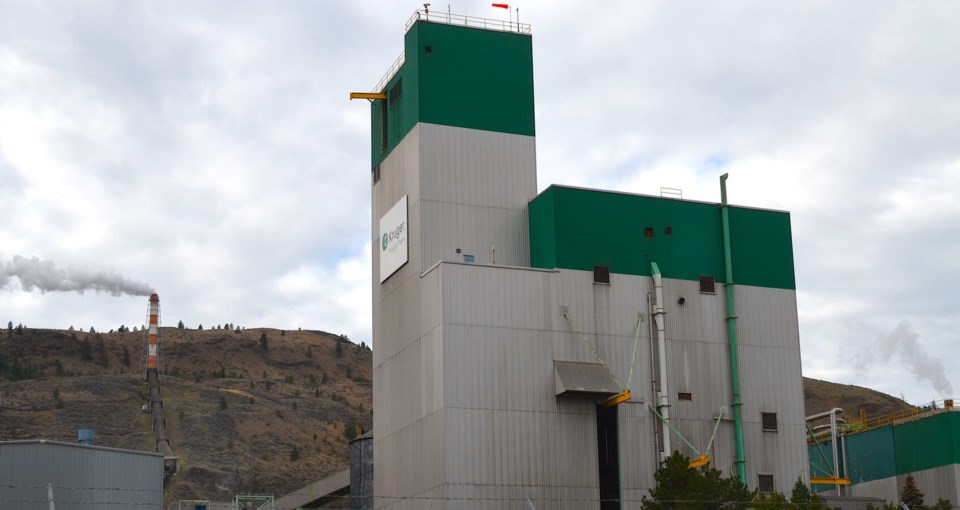A new pulp-washing system and artificial intelligence at Kamloops’ Kruger pulp mill will reduce the amount of bleaching chemicals the facility uses, but don't expect them to do anything about the smell.
Kruger is spending $32 million — including $5 million apiece in provincial and federal grant funding — to install a new pressure diffusion washer with an AI-powered control system that will be a first-of-its-kind technology in Canada.
Retiring mill manager Darrell Booker told Castanet Kamloops the new equipment will see the mill use between 30 and 50 per cent fewer bleaching chemicals, such as chlorine dioxide and hydrogen peroxide, in the washing process.
While cleaner, the tech will not impact the rotten egg smell known to emanate from the Mission Flats. Booker said that's because the odour comes from sulphur compounds in the chemicals used in the pulp production process, not the bleaching process.
New products, markets
Booker said the long-term cost savings of having to buy fewer bleaching chemicals will see the mill recover its investment in this new technology soon.
“When you do the math, Kruger is on the hook for about $22 million, and they're going to recover that in about three years,” he said.
In addition to reducing production costs, adding the new washer equipped with AI will create “ultra clean pulp,” enabling the mill to branch out into new markets by making other, more environmentally friendly, products with less bleaching chemical, Kruger Kamloops GM Irene Preto told Castanet.
“When you make pulp, you break the fibre down with chemicals, and then we wash the pulp,” Preto said. “This is going to help us do that [washing] to an even greater extent, and there's artificial intelligence that is going to be involved with optimizing the whole washing line.”
Preto said engineering work has already begun, but the project won’t be complete until 2027.
The project will enable Kruger to ramp up production of ultra-clean pulp from 43,000 megatonnes in its first year of operation to 115,000 annually by its third year. The process will also reduce inorganic material and talc from the finished product.
Project maintains jobs
The new equipment is expected to help preserve the 340 jobs at the mill and add four new roles. Another 95 jobs will be created during the construction phase.
B.C. Ministry of Jobs, Economic Development Brenda Bailey said the reason the government is helping to fund a private company is to protect workers.
“When we make an investment into an excellent company like Kruger, what we're doing is we're helping that company become more competitive, to create the best product that they can create, so that we are able to protect jobs,” she said.
The province’s $5 million contribution to the project came from the $180-million Manufacturing Jobs Fund.
“We know that it's a downturn in forestry economy. How can we ensure, then, that people can maintain their jobs? This is one of the ways that we can do it — by helping really excellent companies remain competitive, and that's where technology comes in,” Bailey said.



